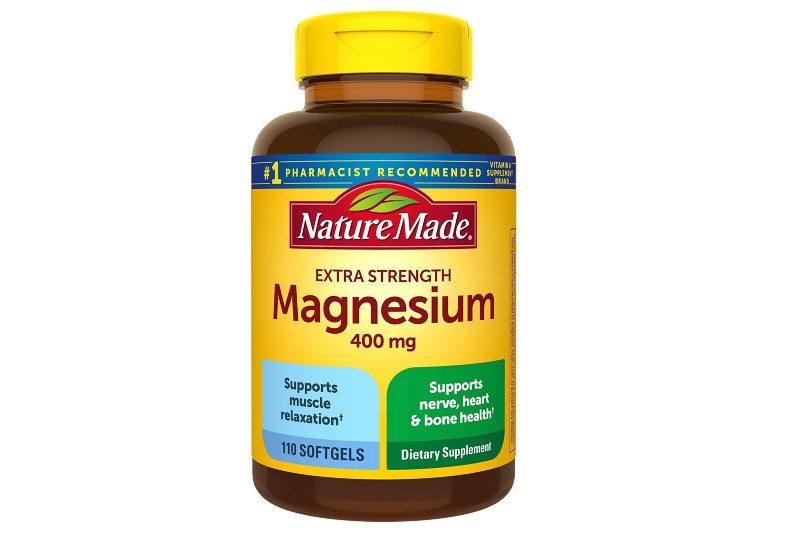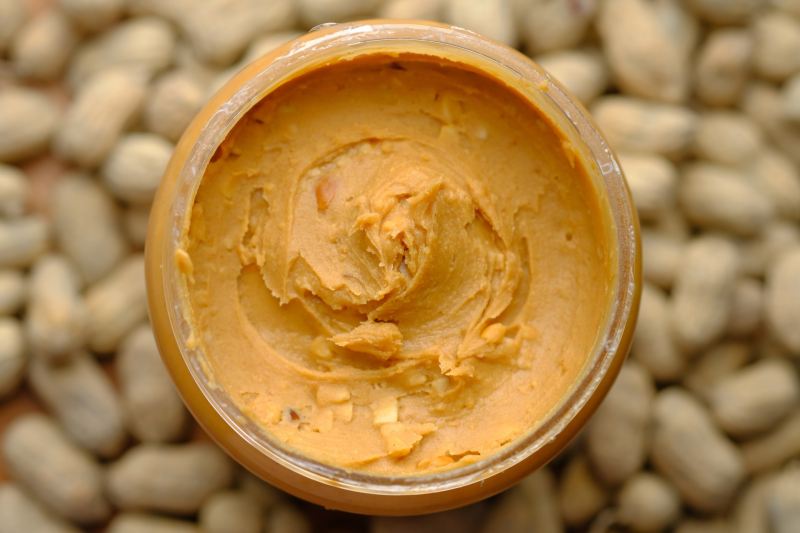
When most people consider important electrolytes that they need to replace after a hard workout, sodium and potassium typically come to mind. But what about magnesium? Magnesium has numerous benefits, and the essential mineral is involved in over 300 different enzymatic reactions in the body.
These include regulating blood sugar and blood pressure, synthesizing proteins, and conducting nerve and muscle impulses. Magnesium is also responsible for transporting calcium and potassium ions across cell membranes; this allows the heart to maintain its regular contractions.
Because there are several vital functions of magnesium in the body, there are numerous benefits associated with taking magnesium supplements or consuming foods high in magnesium to ensure adequate intake. Keep reading for a list of the benefits of magnesium, and make sure you’re not missing out on this essential nutrient for your health!

Benefits of magnesium
The health benefits of magnesium in the body are related to the numerous physiological functions of this mineral. The primary benefits of magnesium include the following:
Magnesium can strengthen your bones
Adequate magnesium intake can ward off osteoporosis and protect the health of your bones because it plays a key role in bone formation. Magnesium levels affect the levels of parathyroid hormones, as well as vitamin D, which are also involved in maintaining bone health by increasing the absorption of calcium to better mineralize bones and prevent thinning. Research has consistently demonstrated that low magnesium levels correlate with increased osteoporosis rates and that supplementation with magnesium in osteoporotic women can attenuate additional bone loss.

Magnesium can boost your workouts
If you want to boost your exercise performance and recovery, turn to magnesium. This mineral helps shuttle glucose into your muscles and lactate out of them, which can help reduce muscle fatigue.
Magnesium can reduce inflammation
We often think of inflammation as just the acute swelling experienced after an ankle sprain or a bad bruise, but chronic low-grade inflammation is the root cause of many diseases, such as cardiovascular diseases, arthritis, and obesity.
It can result in gut barrier damage, poor diet, and stress, among other things. Low levels of magnesium have also been shown to be linked to higher levels of inflammation. Getting sufficient magnesium is one way to reduce inflammation in your body and lower your risk of associated chronic diseases.

Magnesium can prevent migraines
Research shows that low magnesium levels can trigger migraines because a paucity of magnesium causes constriction of the blood vessels in the brain, which can result in a pounding headache or even a migraine. Studies have found that for migraine sufferers, ensuring magnesium intake is adequate can reduce the frequency of migraines by an average of over 40%.
However, you should speak with your doctor if you regularly suffer from migraines and would like to take magnesium supplements specifically to address your condition. Even if you don’t regularly suffer from full-on debilitating migraines, you may find that boosting your magnesium intake keeps annoying tension headaches at bay.
Magnesium may improve your mood
One of the benefits of magnesium is that it can reduce anxiety and depression. Low levels of magnesium have been linked to depression, whereas higher concentrations seem to help elevate mood and reduce anxiety.
Magnesium may help you sleep better
Magnesium promotes muscle relaxation and calms the nervous system, which can help ease your body into a relaxed state for optimal sleep. Many people find that a snack high in magnesium before bed can support a restful night’s sleep.

Magnesium may regulate your blood sugar and prevent type 2 diabetes
Magnesium plays an important role in assisting insulin, the hormone that helps your body regulate blood sugar levels in your body. Those with low levels of magnesium have a greater risk of type 2 diabetes. Moreover, once you have type 2 diabetes, your risk of magnesium deficiency increases even further because your kidneys excrete more magnesium, so your stores get depleted.
Magnesium may lower your blood pressure
Hypertension, or high blood pressure, is one of the major risk factors for heart attacks, strokes, and heart disease. Research has demonstrated that magnesium supplementation can lower blood pressure somewhat. For example, a large-scale meta-analysis of 22 studies found that magnesium supplementation resulted in small but clinically relevant decreases in blood pressure (three to four mmHg for systolic blood pressure and two to three mmHg for diastolic blood pressure).
Moreover, a study examining the protective effects of magnesium on heart disease found that compared to subjects in the lowest quartile of the normal physiologic range of serum magnesium (0.75 mmol/L or less), subjects in the highest quartile (at least 0.88 mmol/L) had a 38% reduced risk of sudden cardiac death. Higher levels of magnesium are also associated with reducing the risk of stroke.
Magnesium may reduce your risk of certain diseases
Magnesium deficiency is associated with increasing the risk of cardiovascular disease, hypertension (high blood pressure), type 2 diabetes, and migraines. Therefore, ensuring your intake of magnesium is sufficient can reduce your risk of these conditions.
The risk of magnesium deficiency is greater in those with malabsorption disorders, such as celiac disease and Crohn’s disease, as well as those with alcoholism and type 2 diabetes, both of which can impair magnesium absorption or deplete stores. Older adults are also prone to magnesium deficiency because absorption rates decrease as we age, and more magnesium is excreted in the urine.

How much magnesium do you need?
The recommended daily allowance (RDA) of magnesium for most men is between 400 and 420 mg, depending on your age. Your needs increase as you age since the absorption rates decrease and the excretion rates increase. Endurance athletes are also particularly prone to magnesium deficiencies due to the excess loss of magnesium in sweat. If you work out a lot, your magnesium needs may be even higher.
Unfortunately, national data shows that nearly 50% of adults in the U.S. do not meet the RDA. However, the good news is that there are plenty of healthy foods high in magnesium, such as leafy green vegetables, tuna, almonds, avocados, pumpkin seeds, and dark chocolate. Regularly consuming these foods or taking a magnesium supplement can help ensure your body has a plentiful supply of this vital mineral.

Try these foods to boost your magnesium
As we noted previously, incorporating foods such as leafy green vegetables, tuna, almonds, avocados, pumpkin seeds, and dark chocolate into your diet can help boost your magnesium levels. There are plenty of other foods that contain magnesium, and one of them is a common staple you probably have in your kitchen right now: peanut butter.
According to the Cleveland Clinic, 2 tablespoons of peanut butter contain 49 mg of magnesium. There is one caveat; however, you need to be careful of what kind of peanut butter you’re eating. It’s a better bet to look for more all-natural peanut butter that has a minimum of ingredients, as some of the commercial brands contain high amounts of salt and sugar, which could negate the health effects of magnesium.
More foods high in magnesium
- Cashews, dry roasted: 74 mg in 1 ounce
- Shredded wheat cereal: 61 mg in two large biscuits
- Black beans: 60 mg in a 1/2 cup
- Baked potato with skin: 43 mg in a 3.5-ounce serving
- Brown rice: 42 mg in a 1/2 cup
- Banana: 32 mg in one medium banana



